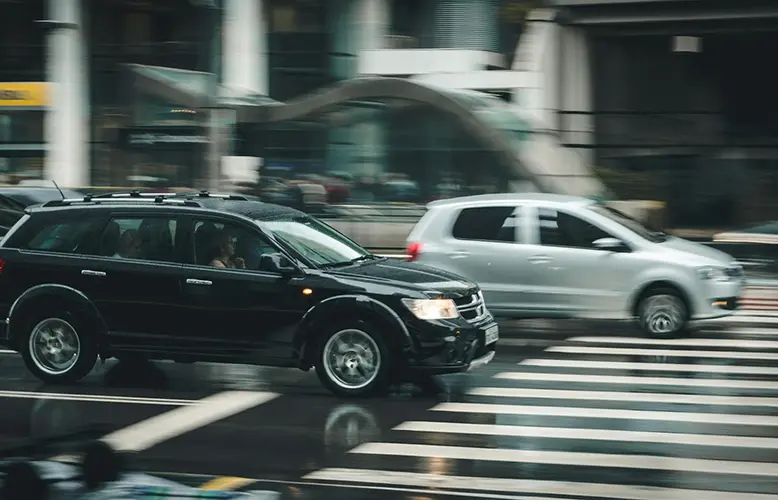
Picture this: you’ve been counting down the days to your dream vacation, ready for smooth sailing and nothing but good vibes. But, surprise, life throws a curveball, and suddenly, you’re dealing with a fender bender far from your usual stomping grounds. Breathe in, breathe out – we’ve got your back. We’re here to be your GPS through the post-accident maze, helping you get back on track to the relaxation and fun you signed up for.
Vacations are supposed to be all about fun in the sun, not swapping insurance info. Yet, here you are, navigating a detour you didn’t plan for. No worries – take a beat, and we’ll guide you step by step. This guide is like your travel buddy, steering you through the aftermath of a vacation car mishap. Let’s turn this unexpected hiccup into just a blip on your holiday radar, so you can get back to making those unforgettable memories. Ready to kick those car accident blues and reclaim your vacation joy? Let’s roll.

Take Immediate Action
Right after the accident, it’s crucial to ensure everyone’s safety by taking a few important steps. If possible, move the vehicles out of traffic to a safe location, such as the shoulder of the road, to prevent any further accidents or disruptions. Next, carefully assess the situation to check if anyone is injured. If there are any signs of injury, it’s crucial to call emergency services immediately to ensure that proper medical assistance is provided without delay.
Even if there are no visible injuries, it’s wise to be cautious and consider consulting medical professionals, as some injuries may not be apparent right away. It’s important to prioritize everyone’s well-being and take the necessary steps to address any potential injuries or medical concerns following an accident.
Document Everything
Once you’ve ensured everyone’s safety, it’s important to start documenting the scene thoroughly. Use your smartphone to take clear and detailed photos of the vehicles involved, capturing different angles and any visible damage. Additionally, photograph the surrounding area and any significant landmarks to establish the location accurately.
In the event of a car accident, it’s crucial to exchange contact and insurance information with the other driver. However, it’s important to keep the conversation factual and professional—avoid admitting fault or discussing the details of the incident at this stage. Taking these steps can help ensure a smooth and accurate post-accident process.
Contact Your Insurance Company
You should notify your insurance company as soon as possible, even if you’re in another state or country. It’s important to reach out to them at the earliest opportunity, as they can provide guidance through the process of filing a claim and advise you on the next steps to take. Remember to ask about what’s covered, especially if you’re in a different location, as policies may vary based on the region. This way, you can ensure that you have a comprehensive understanding of your coverage and can make informed decisions regarding your situation.
Understanding Local Laws
Laws can differ significantly from place to place, which is something you need to be aware of when dealing with an accident on vacation. It’s crucial to understand the local traffic laws, as they may vary widely in different regions and countries. For instance, in some areas, there might be specific protocols for reporting accidents or rules about liability that differ from those in your home country. If needed, seeking legal advice from a car accident attorney, particularly if you’re abroad, can provide valuable clarity and guidance in navigating these unfamiliar legal landscapes. Being knowledgeable about these differences can save you a lot of headaches down the line and ensure that you handle any potential legal issues effectively.
Dealing with Rental Cars
If the car you were driving was a rental, you’ll also need to contact the rental agency. It’s important to understand the specifics of your rental insurance coverage, such as whether it includes coverage for rental car accidents. Additionally, if you purchased travel insurance, it’s advisable to check if it includes rental car accident coverage. Keep in mind that the rental company will have its own process for handling accidents, which may involve filing an additional report with them.
Keep Track of Expenses and Reports
When dealing with the aftermath of an accident, it’s crucial to maintain a comprehensive record of all expenses incurred as a result. This includes not only costs directly related to the accident but also any pertinent documentation from law enforcement and medical professionals. These records will play a vital role in facilitating insurance claims and any potential legal actions. It’s important to retain all receipts and meticulously document any significant interactions pertaining to the accident, ensuring thorough coverage of all relevant details.
Taking Care of Yourself
Throughout this process, it’s absolutely paramount to prioritize taking care of yourself both physically and emotionally. A car accident can be an incredibly traumatic and distressing experience, particularly when it occurs during what was supposed to be a relaxing vacation. It’s crucial to allow yourself the necessary time to recover, seek out support from loved ones or professionals if you find yourself in need, and most importantly, refrain from rushing back into your travel plans until you genuinely feel prepared to do so. This period of recovery may involve physical therapy, counseling, or simply taking the time to rest and heal. It’s important to listen to your body and mind and to be patient with yourself as you navigate through the aftermath of such an unexpected event.

Navigating the aftermath of a car accident is never a pleasant experience, especially when it abruptly interrupts your much-anticipated vacation. However, with the right steps and a proactive approach, you can manage the situation effectively and get back on track to enjoying your holiday. Remember, the key is to prioritize safety, document everything meticulously, understand your insurance coverage, and be aware of local laws. Dealing with rental cars and keeping track of all associated expenses and reports are equally important. Above all, don’t forget to take care of yourself during this tough time. Car accidents can cause physical and emotional stress, and it’s essential to give yourself the space and time to heal. Try not to let this one unfortunate incident overshadow your entire trip. After all, it’s how we handle the unexpected twists and turns that truly define our vacation stories and life experiences.





